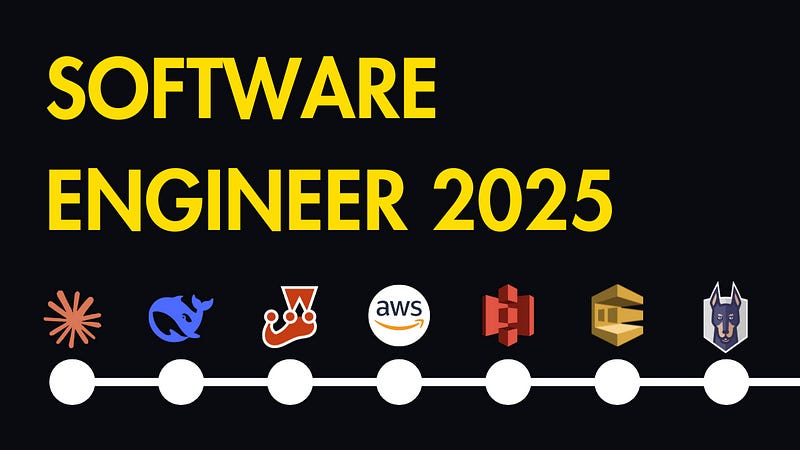Exploring the Role of an AWS Software Engineer in Cloud Computing
The Role of an AWS Software Engineer
As technology continues to evolve, the demand for skilled professionals in cloud computing and software development is on the rise. One such role that has gained prominence in recent years is that of an AWS Software Engineer.
What is an AWS Software Engineer?
An AWS Software Engineer is a professional who specializes in developing applications and solutions using Amazon Web Services (AWS) cloud platform. They are responsible for designing, building, and maintaining software systems that leverage the capabilities of AWS services.
Key Responsibilities
Some of the key responsibilities of an AWS Software Engineer include:
- Architecting and deploying scalable, secure, and reliable applications on AWS
- Optimizing performance and cost-efficiency of applications running on AWS infrastructure
- Collaborating with cross-functional teams to design and implement cloud-based solutions
- Ensuring compliance with best practices for cloud security and governance
- Maintaining and troubleshooting cloud-based systems to ensure smooth operation
Skills Required
To excel as an AWS Software Engineer, one needs a combination of technical skills and expertise. Some essential skills for this role include:
- Proficiency in programming languages such as Python, Java, or Node.js
- Deep understanding of cloud computing concepts and architectures
- Familiarity with AWS services like EC2, S3, Lambda, RDS, etc.
- Experience with infrastructure as code tools like CloudFormation or Terraform
- Strong problem-solving abilities and attention to detail
Career Outlook
The demand for AWS Software Engineers is expected to remain strong as more businesses migrate their operations to the cloud. With the continuous growth of cloud computing adoption, professionals with expertise in AWS are well-positioned for rewarding career opportunities.
9 Essential Tips for Aspiring AWS Software Engineers
- Familiarize yourself with AWS services and their use cases.
- Practice coding in languages commonly used with AWS, such as Python, Java, or Node.js.
- Learn about infrastructure as code using tools like CloudFormation or Terraform.
- Understand security best practices for cloud environments and how to implement them on AWS.
- Explore serverless computing with AWS Lambda and API Gateway.
- Get hands-on experience with deploying and managing applications on AWS.
- Stay updated on the latest trends and updates in the AWS ecosystem through blogs, forums, and webinars.
- Collaborate with other team members to design scalable and cost-effective solutions on AWS.
- Prepare for AWS certifications to validate your skills and knowledge.
Familiarize yourself with AWS services and their use cases.
To excel as an AWS Software Engineer, it is essential to familiarize yourself with a wide range of AWS services and understand their respective use cases. By gaining in-depth knowledge of services such as EC2, S3, Lambda, and RDS, you can effectively leverage the capabilities of each service to design and implement efficient cloud-based solutions. Understanding the strengths and limitations of different AWS services will enable you to make informed decisions when architecting applications on the AWS platform, ultimately leading to more robust and scalable software systems.
Practice coding in languages commonly used with AWS, such as Python, Java, or Node.js.
To excel as an AWS Software Engineer, it is crucial to practice coding in languages commonly used with AWS, such as Python, Java, or Node.js. These languages are widely supported by AWS services and provide the flexibility and scalability needed to develop efficient cloud-based solutions. By honing your coding skills in these languages, you can effectively leverage the full potential of AWS and enhance your ability to architect and deploy robust applications on the cloud platform.
Learn about infrastructure as code using tools like CloudFormation or Terraform.
To excel as an AWS Software Engineer, it is crucial to understand the concept of infrastructure as code and utilize tools like CloudFormation or Terraform. By mastering these tools, engineers can automate the provisioning and management of cloud resources, ensuring scalability, repeatability, and efficiency in application deployment. Learning how to define infrastructure in code not only streamlines the development process but also enhances collaboration among team members and promotes consistency across environments. Embracing infrastructure as code empowers AWS Software Engineers to build robust, scalable solutions that align with best practices in cloud computing architecture.
Understand security best practices for cloud environments and how to implement them on AWS.
Understanding security best practices for cloud environments and knowing how to implement them on AWS are crucial skills for an AWS Software Engineer. Security is a top priority when working with cloud-based systems, and being well-versed in best practices ensures the protection of sensitive data and infrastructure. By staying informed about security measures specific to AWS services and implementing them effectively, AWS Software Engineers can create robust and secure applications that meet industry standards and compliance requirements.
Explore serverless computing with AWS Lambda and API Gateway.
Discover the power of serverless computing by leveraging AWS Lambda and API Gateway. As an AWS Software Engineer, exploring these services can revolutionize the way you design and deploy applications. With AWS Lambda handling the execution of your code without the need to provision or manage servers, and API Gateway providing a seamless interface for clients to interact with your functions, you can build scalable and cost-effective solutions that respond dynamically to user demand. Embracing serverless architecture with AWS opens up a world of possibilities for creating efficient and flexible applications in the cloud.
Get hands-on experience with deploying and managing applications on AWS.
To excel as an AWS Software Engineer, it is crucial to gain hands-on experience with deploying and managing applications on the AWS cloud platform. By actively working on real-world projects, engineers can develop a deep understanding of AWS services, best practices for deployment, and troubleshooting techniques. This practical experience not only enhances technical skills but also provides valuable insights into optimizing performance, ensuring security, and achieving cost-efficiency in cloud-based applications.
Stay updated on the latest trends and updates in the AWS ecosystem through blogs, forums, and webinars.
Staying updated on the latest trends and updates in the AWS ecosystem is crucial for AWS Software Engineers to remain competitive and deliver cutting-edge solutions. By actively engaging with blogs, forums, and webinars dedicated to AWS, professionals can gain valuable insights into new features, best practices, and emerging technologies within the cloud computing domain. This continuous learning process not only enhances their technical skills but also enables them to adapt quickly to changes in the rapidly evolving AWS landscape, ultimately contributing to their success in the field.
Collaborate with other team members to design scalable and cost-effective solutions on AWS.
Collaborating with fellow team members is crucial for AWS Software Engineers to design scalable and cost-effective solutions on the Amazon Web Services platform. By working together, engineers can leverage their diverse expertise to create innovative and efficient cloud-based architectures that meet the organization’s requirements while optimizing costs. This collaborative approach not only enhances the quality of the solutions but also fosters a culture of teamwork and knowledge sharing within the team, ultimately leading to more successful and sustainable cloud implementations.
Prepare for AWS certifications to validate your skills and knowledge.
To excel as an AWS Software Engineer, it is highly recommended to prepare for AWS certifications to validate your skills and knowledge. Achieving AWS certifications not only demonstrates your expertise in cloud computing and AWS services but also opens up new opportunities for career advancement. By obtaining these certifications, you showcase your commitment to continuous learning and staying updated with the latest technologies in the industry, which can significantly enhance your credibility as a professional in the field of cloud computing.












